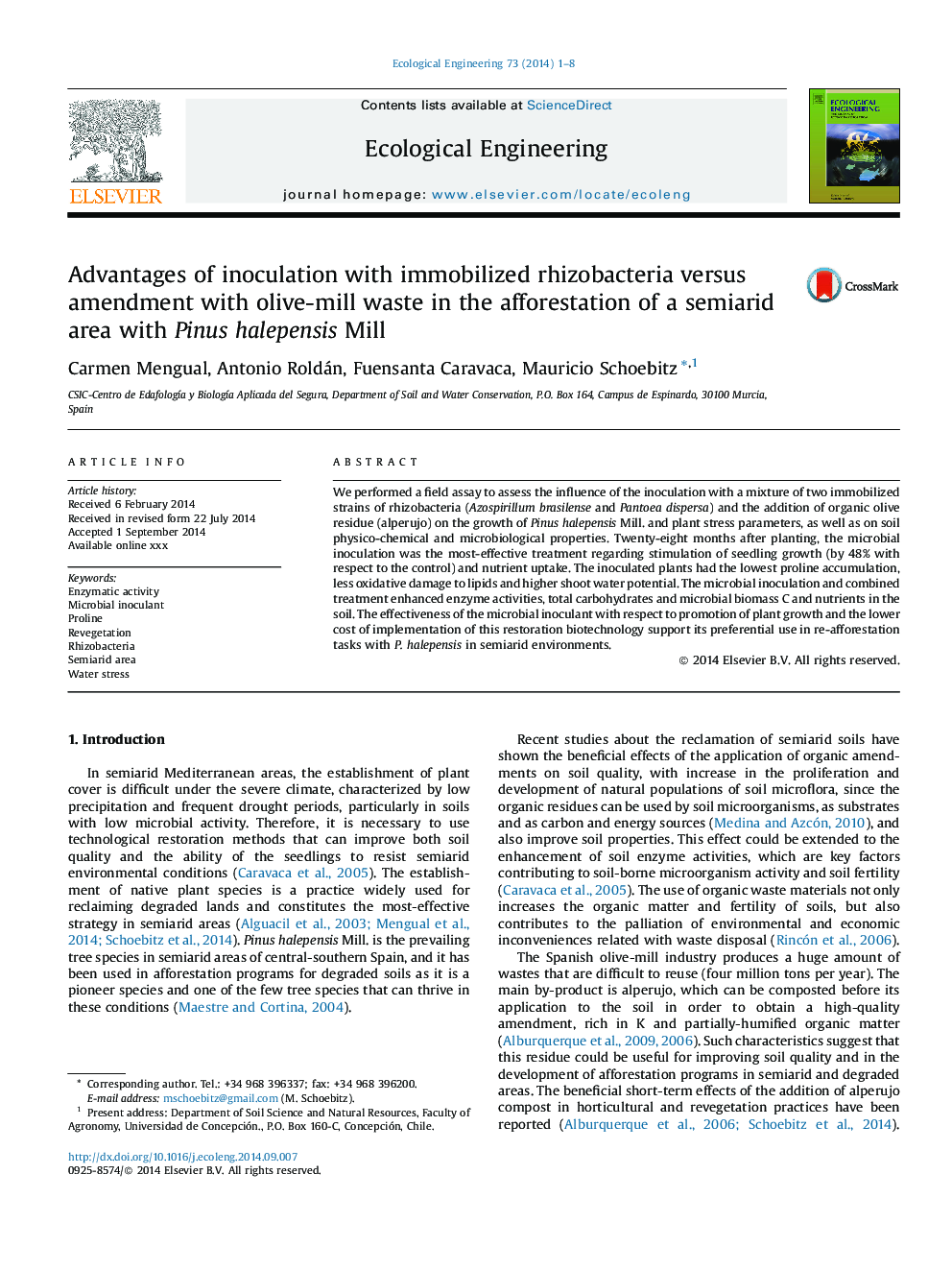| Article ID | Journal | Published Year | Pages | File Type |
|---|---|---|---|---|
| 6301841 | Ecological Engineering | 2014 | 8 Pages |
Abstract
We performed a field assay to assess the influence of the inoculation with a mixture of two immobilized strains of rhizobacteria (Azospirillum brasilense and Pantoea dispersa) and the addition of organic olive residue (alperujo) on the growth of Pinus halepensis Mill. and plant stress parameters, as well as on soil physico-chemical and microbiological properties. Twenty-eight months after planting, the microbial inoculation was the most-effective treatment regarding stimulation of seedling growth (by 48% with respect to the control) and nutrient uptake. The inoculated plants had the lowest proline accumulation, less oxidative damage to lipids and higher shoot water potential. The microbial inoculation and combined treatment enhanced enzyme activities, total carbohydrates and microbial biomass C and nutrients in the soil. The effectiveness of the microbial inoculant with respect to promotion of plant growth and the lower cost of implementation of this restoration biotechnology support its preferential use in re-afforestation tasks with P. halepensis in semiarid environments.
Keywords
Related Topics
Life Sciences
Agricultural and Biological Sciences
Ecology, Evolution, Behavior and Systematics
Authors
Carmen Mengual, Antonio Roldán, Fuensanta Caravaca, Mauricio Schoebitz,
